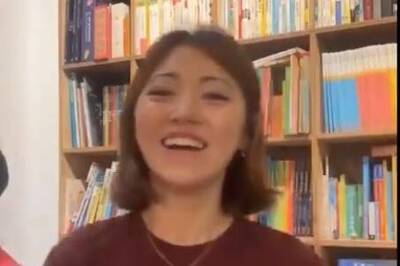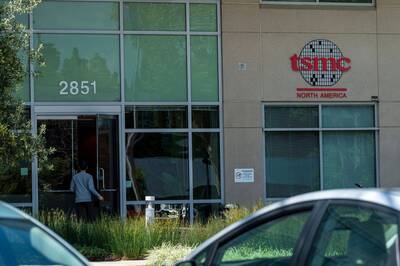《TAIPEI TIMES 焦點》 No need for transitional justice: academic

Soochow University law professor Chen Ching-hsiou yesterday speaks at the second public hearing for the legislation of a transitional justice promotion act at the Legislative Yuan. Photo: Chang Hsiao-ti, Taipei Times
By Alison Hsiao / Staff reporter
A law professor invited by the Chinese Nationalist Party (KMT) to the second public hearing on the draft legislation on transitional justice yesterday angered other academics at the meeting by questioning the need for transitional justice because the KMT brought treasures and intelligentsia from China to Taiwan in 1949.
As in the first public hearing, on Monday, experts and activists were invited by the caucuses to comment on the proposed legislation in the second.
The need, the framework and the scope of the legislation were debated, but Soochow University law professor Chen Ching-hsiou (陳清秀) stood out by questioning the need to take the past authoritarian regime to task at all.
Chen, who is also former director of the Executive Yuan’s Central Personnel Administration, said history should be assessed by “taking into account both [a regime’s] mistakes and achievements.”
“[The KMT regime] should not be evaluated in terms of its human rights violations only; it had to promulgate Martial Law as an emergency measure during the [civil] war as a last resort, and the legality of its authoritarian rule should not be completely denied,” Chen said.
“The KMT regime might have done a few things that were not beneficial to ethnic Taiwanese, but it also brought them benefits, such as bringing the treasures of the 5,000-year-old Chinese culture, China’s riches, to Taiwan and granting us the potential to develop tourism,” he said.
“The KMT enhanced the people’s cultural nurturing, preserved Chinese culture and brought with them hundreds of thousands of people with outstanding upbringings and soldiers to Taiwan who contributed to Taiwan’s culture, economy and security,” Chen added.
He also said that if historical sites, such as the Chiang Kai-shek Memorial Hall and Sun Yat-sen Memorial Hall, “two of the few places tourists visit when they come to Taiwan,” are demolished, “how are we then to attract tourists?”
Taiwan Association for Truth and Reconciliation executive secretary Yeh Hung-ling (葉虹靈) responded that White Terror victims and their families had been deprived of their lives, freedom, dignity and future possibilities, “which simply cannot be compared with the financial prosperity that [Chen] alleged that the KMT had helped Taiwan achieve.”
“I just cannot imagine that a person could bring up ‘tourism’ as a reason [for not holding the authoritarian regime accountable] in the presence of Ms Kuo [Su-chen (郭素貞)] and Chang [Ying-yu],” who are the families of White Terror victims, Yeh said.
“Chen should Google how [democracy pioneers] Lei Chen (雷震) and Yin Hai-kuang (殷海光), the two exceptional figures the KMT brought with them to Taiwan, were treated by this regime,” she added, asking people not to continue “uttering remarks that insult our intelligence.”
Huafan University assistant philosophy professor Kung Wei-cheng (龔維正) also disagreed with Chen’s idea of “evening out a regime’s violations with its achievements.”
“So are we to list the achievements a murderer has made before we can punish him? So impunity could be granted to him if he has — if he is a professor — published a set number of papers?” Kung asked.
新聞來源:TAIPEI TIMES

















